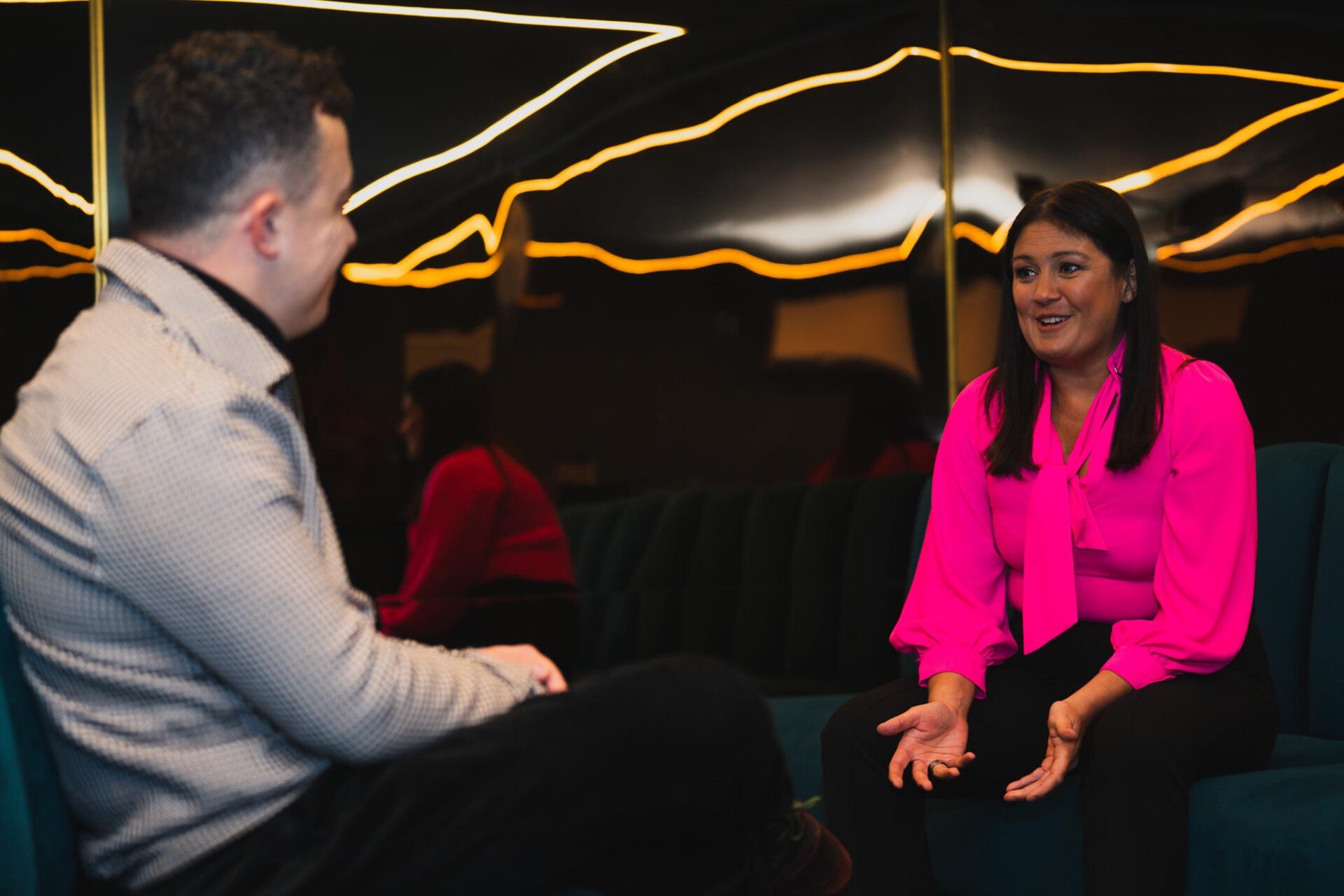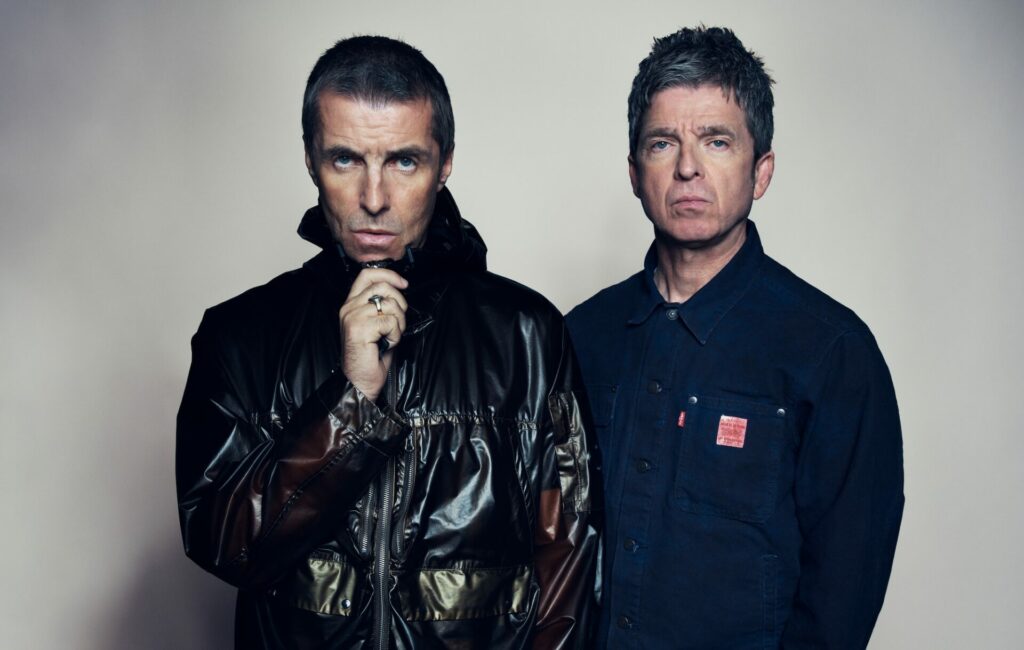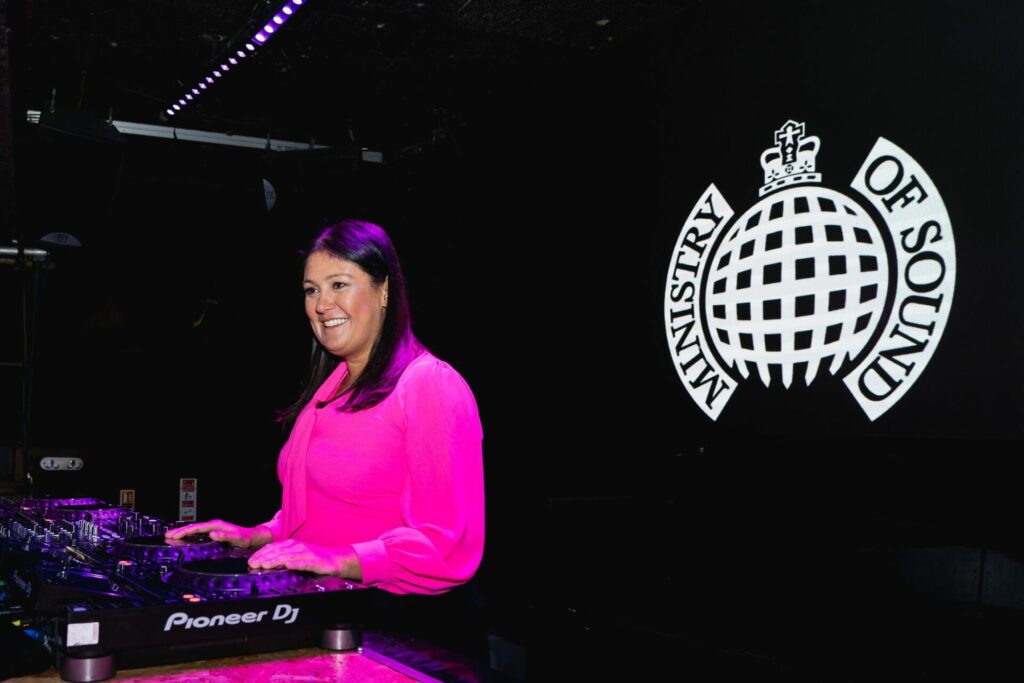Lisa Nandy: ‘Time’s up for ticket touts’
As the UK government announces plans to stamp out ticket touting, Culture Secretary Lisa Nandy sits down with Rolling Stone UK to discuss the biggest issues facing music.

“The message from this government is that time’s up for ticket touts,” Lisa Nandy boldly tells Rolling Stone UK as we sit down at Ministry of Sound on a freezing afternoon in early January.
The iconic South London venue, which has honed the careers of DJs across the globe, is the perfect place for the Culture Secretary to tell us about Labour’s new plans to ensure that fans aren’t getting ripped off when buying tickets for live events across the UK.
From today (January 10), a 12 week consultation has been launched to set out a range of measures in the ticket resale market to make sure that fans aren’t getting ripped off anymore. They include a cap of 30 per cent on resold tickets and limiting the number of tickets that resellers can flog to prevent industrial scale touting. There’s the small matter of dynamic pricing too, which Nandy denounced as a rip off after fans were unexpectedly met with grossly inflated prices when tickets for Oasis’ highly anticipated 2025 reunion shows went on sale last year.
A fresh call for evidence will seek views on the controversial practice and whether fans are sufficiently protected from it.
“Gone are the days when ticket touting was a guy standing outside a stadium with a handful of tickets,” Nandy explains.
“This is a really sophisticated operation that is now leeching millions of pounds, not just out of the pockets of fans, but the music industry as a whole, and we’re determined that that’s going to stop. We made a commitment at the election that it would stop if we were elected and so we’re kicking off a consultation for 12 weeks. It’s not about whether we take action, but about how we take action to stop ticket touts ripping off fans, buying up tickets on a mass scale and acting as parasites on an industry that needs investment, while stopping fans from seeing the bands that they love.”
And as for dynamic pricing?
“Everyone saw what happened with Oasis. It was a rip off and it was desperate for a lot of fans because they didn’t know that when they got to the front of the queue that they were going to be confronted with prices that were higher than they thought they were paying,” she explains.

“For a lot of people that just meant the end of a dream. Part of this consultation will be about how we deal with those issues, how we make sure that fans have much more power, the system is much more transparent.”
Six months into the job, however, Nandy knows that this is the tip of the iceberg. From the existential threats faced to small venues across the UK to touring in the EU for UK bands, there’s a plethora of issues that the Culture Secretary has to tackle. You can read our whole Q&A with the Culture Secretary below.
We’re now six months into the new government. How have you found being Culture Secretary and what are the major issues that you face?
It’s been amazing and a massive honour. I think most of the cabinet is pretty fed up with me because it’s really genuinely the best gig in government. I think so much of what we do and get involved with are the places that give people’s lives meaning, whether it’s sport, music, art, drama, dance or theatre, it’s the stuff that makes people’s lives richer and worth living, but I also think there’s something quite important about this moment because for such a long time I think far too many people have seen the things that they care about stripped out of their communities and their access to them denied.
I’m the MP for Wigan and we’re home to The Verve, we’re proud of that. But I look at all the live music venues that The Verve used to play at and most of them have closed. Music has been downgraded on the national curriculum and so much of the opportunity to access the things that you really care about have been stripped out of classrooms and communities. Nowhere is that more obvious than the way in which ticket touts have been allowed to run riot, preventing fans from seeing their favourite bands and live music.
It’s been really exciting to come in at this moment and take on a system that isn’t working for people. We’re going to put fans and people back at the heart of arts, music, sport and culture, which is exactly where they belong.
What do you think your major wins have been so far?
We’ve brought together the music industry around the issue of live music venues, something that I feel passionately about. Andy Burnham, who’s our mayor in Greater Manchester, did a great piece of work with UK Music a few years ago, looking at how we rebuild that ecosystem, and we are moving in the right direction with the grassroots levy on ticket sales.
I went to Ipswich with Ed Sheeran a few weeks go to see the work he’s doing to build that ecosystem and it seems that artists are coming forward to commit to making that levy is on their tickets so that it can feed back into the music industry and help support emerging artists. Music is in every community, so that’s been a really great thing to be able to unlock, but there’s loads more to do.
Today’s announcement offers some bold plans to tackle ticket touting and put fans back into music. What do you think it will achieve?
The message from this government is that time’s up for ticket touts. Gone are the days when ticket touting was a guy standing outside a stadium with a handful of tickets.
This is a really sophisticated operation that is now leeching millions of pounds, not just out of the pockets of fans, but the music industry as a whole, and we’re determined that that’s going to stop. We made a commitment at the election that it would stop if we were elected and so we’re kicking off a consultation for 12 weeks. It’s not about whether we take action, but about how we take action to stop ticket touts ripping off fans, buying up tickets on a mass scale and acting as parasites on an industry that needs investment, while stopping fans from seeing the bands that they love.
Dynamic pricing is slightly trickier though. It’s morally dubious, but it’s also entirely legal isn’t it?
It’s an area where there’s been a lot less parliamentary debate, and a lot less debate in the industry as well. My colleague Sharon Hodgson has campaigned on secondary ticket resales for well over a decade and it’s well understood that action needs to be taken and the mechanisms to do so are clear.
We’ve just got to make sure that we get the right mix when we bring forward a plan post consultation with dynamic pricing, because it’s something that is used in lots of areas of the economy.
The Oasis ticket issue was interesting because I’m from Manchester and all my mates were trying to get tickets having grown up with those anthems in our teenage years. The experience they, and many others, had was partly about not knowing that they were going to be confronted with these inflated prices.
They thought there was one price, so there was a real issue about transparency and information. But there was also an issue about the way in which these systems funnel people into one bottleneck so that the prices can inflate disproportionately and that’s something that we’re really keen to look at as part of this consultation.
You mentioned Ed Sheeran, who has just launched his foundation to support Music Education. He’s a shining example of what grassroots venues can do.
When I was out in Ipswich with Ed Sheeran a few months ago, he said to me, ‘It’s so obvious that talent is everywhere, but opportunity is not’. And in some parts of the country now, if you’re interested in music, you’re virtually in a desert.
Numbers of young people taking up music GCSE have really dropped off as it’s been downgraded on the curriculum and for a lot of young people it’s really hard to get access to instruments.
Then you try and find a live music venue to perform in, and often they’ve disappeared, they’re just not there. And then when you do break through, there are serious issues about renumeration for artists, particularly with the rise of streaming. At every stage it seems like the system is stacked against the musicians, stacked against the fans, and we’re really determined that that’s going to change.
There’s also the issue of access to music education. What can be done there?
I’m quite interested at looking at the work that’s been done in Scotland. They’re light years ahead in terms of the work that some of the charitable trusts have been doing. They have music lending libraries to deal with the shortage of instruments for young people, where you can just go to your local library and take out a guitar. It’s incredible and they tailor it to local circumstances, so it works for the local community, but we are looking at those proposals with a view to rolling them out in England as well.
One area that I’m particularly passionate about is working with children in care too, and we had Sir Mo Farah come in to Parliament the other week to talk about access to sport for young people and it’s a similar challenge how that been downgraded on the curriculum. He said putting on a pair of trainers saved his life.
Having working with children in care, I know how much music, sport and arts can make a difference to them at the toughest time in their lives, but so often they’re the least likely to be able to access it.

Particularly in terms of live venues, the Music Venue Trust told us last year that part of the battle in saving independent venues is speaking to industry bosses and telling them about their responsibility to act. How’s that going?
I’ve already met most of the bosses of the big music labels and they’re really keen to work with us. I’ve met with Lucian Grange, the Universal CEO, and Sony’s Rob Stringer. In a few weeks time I’ll be going to the States too where we’ll be talking about a lot of issues including streaming and creative remuneration, some of the big issues that are facing our artists here.
There are clearly differences of opinion, but actually I agree that government has a key role to play here in bringing people together and resolving these issues. I’ve found no lack of willingness to do it, not least because we were absolutely crystal clear in the run up to the election that we’re on the side of fans, we’re on the side of musicians. We’ll be launching a consultation on AI too, we’re putting artists and content creators right at the centre of the ecosystem with proper remuneration.
Can you tell me about Labour’s plans for post-Brexit touring in Europe too? Artists have complained about the difficulties of endless red tape and extortionate costs after leaving the EU. What can be done there?
That change is going to come. We need to make it a more seamless process and more similar to how it was back in the day. This is the top issue that most artists have raised with me and with all of my colleagues in government and even did in opposition ever since that Brexit deal was struck.
I think it’s a bad deal for us. I also think it’s a bad deal for the EU. I think we would all benefit from much closer cooperation so that our artists can tour freely across Europe and their artists can come and tour freely here in the UK as well.
My colleague Nick Thomas-Symonds is leading the negotiations with the EU and this is obviously part of the agenda, and I’ve been talking to counterparts in other European countries and trade unions as well. We work very closely with the Musicians Union and they have counterparts in lots of EU countries who are desperate for a much closer relationship between us and the EU to make sure that their artists can reach the UK market, which is huge and is incredibly influential for them.
We’re seeking a much closer relationship and we’re confident that we can achieve it because in the end it’s in both of our interests to do it.
And finally, some quick-fire questions. Your first gig?
I was very young! It was either Michael Jackson or Prince, because I had a childminder who was massively into them.
We’re at Ministry of Sound. When did you last go to a rave?
This is sad. I’m a Manc by birth but I just missed the Haçienda era, my sister was very much at the tail end of that. She was a Hacienda regular and I was much more like the Ritz. You’d go and get drunk around the back and try and bust in the front and pretend you’re 18. But I like to think that music is in my blood, Tony Wilson of Factory Records worked for my mum at Granada Television and he used to babysit us as kids! He was naughty, he never played by the rules but he was tremendously kind.
The last gig you saw?
Taylor Swift at Wembley and before that Beyoncé at Murrayfield. They were both amazing.
And the bucket list artist you’d like to see, dead or alive?
Britney. I’ve been to every single one of her UK tours and I’d love to see her again.
A Britney song to sum up your political career?
‘Oops, I Did It Again’.
